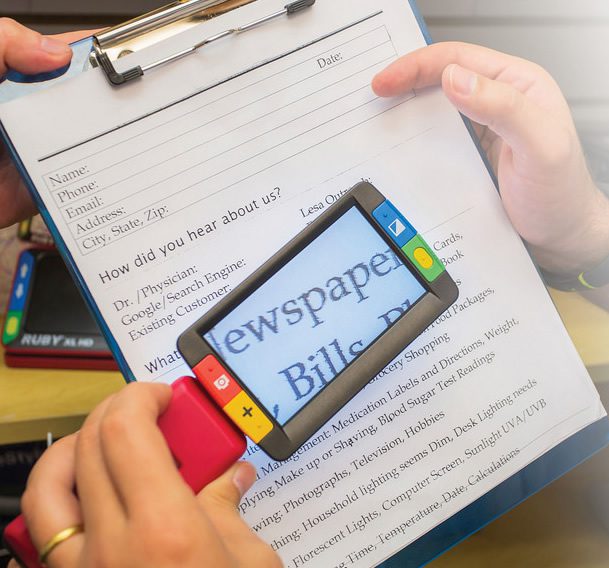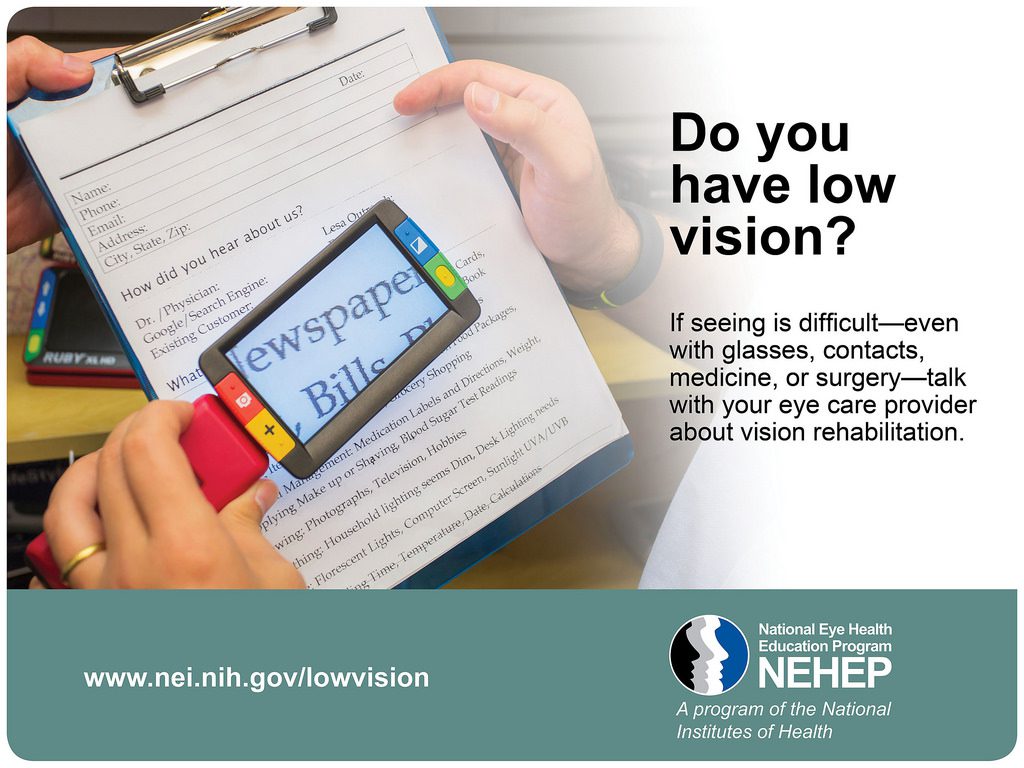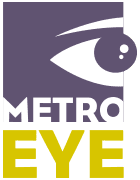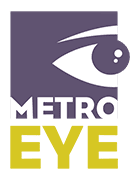

February is Low Vision Awareness Month and Metro Eye is helping get the word out about low vision and how it currently affects 3 million Americans. Experts project by 2030 the number of Americans who have low vision will reach to 5 million.
What is Low Vision?
Low vision is when even with regular glasses, contact lenses, medicine, or surgery, people have difficulty seeing, which makes everyday tasks difficult to do. Activities that used to be simple like reading the mail, shopping, cooking, and writing can become challenging. Most people with low vision are age 65 or older. The leading causes of vision loss in older adults are age-related macular degeneration, diabetic retinopathy, cataracts, and glaucoma. Among younger people, vision loss is most often caused by inherited eye conditions, disease, or trauma. For people with low vision, maximizing their remaining sight is key to helping them continue to live safe, productive, and rewarding lives.
How do I know if I suffer from low vision?
There are many signs of having low vision. Even while wearing glasses or contacts, you may have low vision when experiencing issues with:
- Recognizing the faces of family and friends
- Reading, cooking, sewing, or fixing things around the house
- Selecting and matching the color of your clothes
- Seeing clearly with the lights on or feeling like they are dimmer than normal
- Reading traffic signs seeing things far away
Who can help?
A low vision specialist can help with treatment for your low vision. A low vision specialist is an ophthalmologist or optometrist who works with people who have low vision. A low vision specialist can develop a vision rehabilitation plan that identifies strategies and assistive devices appropriate for the person’s particular needs. The good news is there is help for those suffering from low vision. Vision rehabilitation can make a big difference to a person adjusting to vision loss and should be considered a key part of a patient’s overall care. Vision rehabilitation can include the following:
- Training to use magnifying and adaptive devices
- Teaching new daily living skills to remain safe and live independently
- Developing strategies to navigate around the home and in public
- Providing resources and support
If you or someone you know is experiencing symptoms of low vision, contact Metro Eye at 414-727-5888 for an appointment to have your vision looked at. For more information about low vision, visit https://nei.nih.gov/lowvision/.

